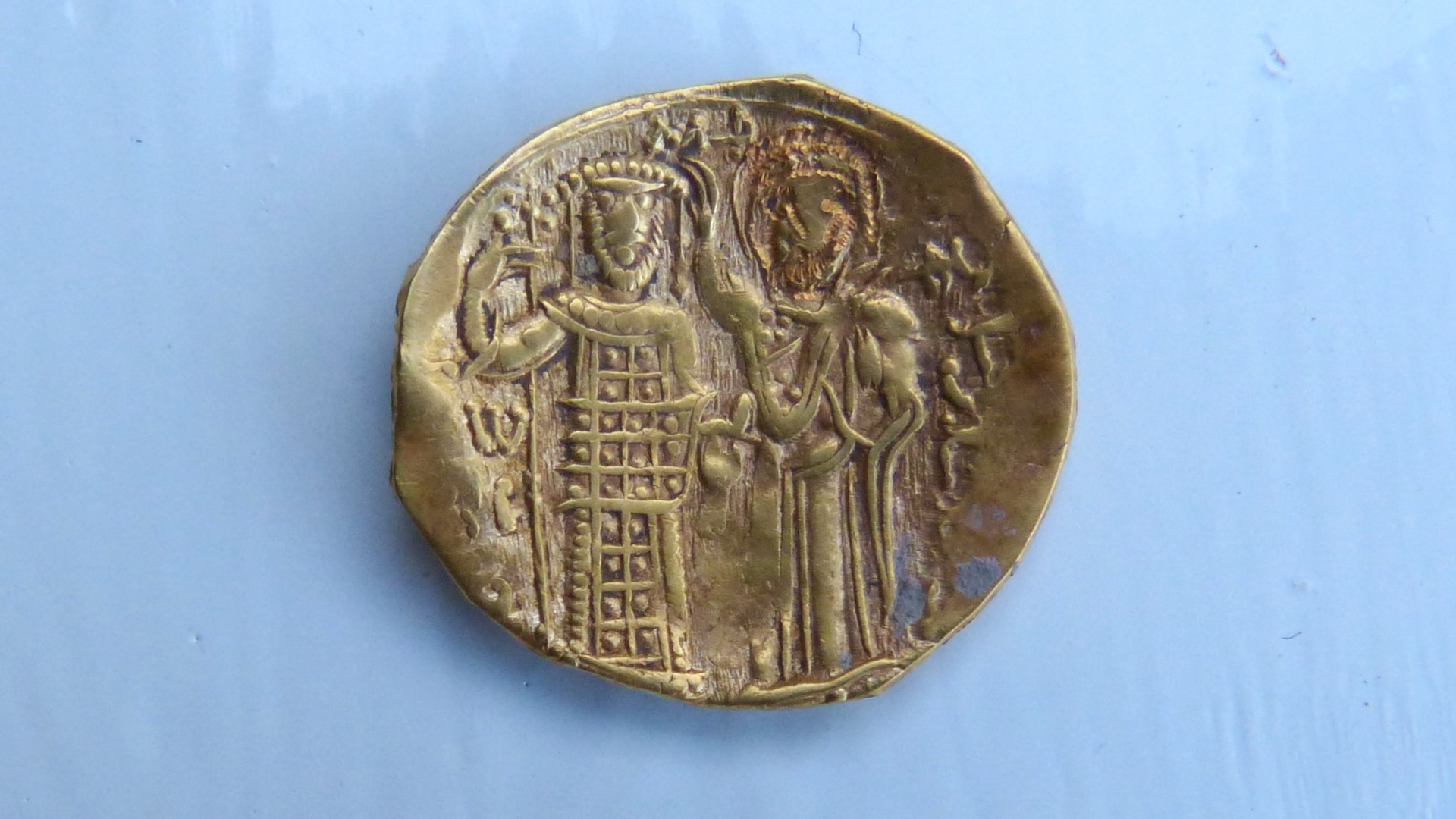
A gold coin unearthed at the site of a medieval fortress in Bulgaria indicates the wealth of the people who lived there during the early years of Ottoman Turkish rule, according to archaeologists.
A team from the Rousse Regional Museum of History found the coin earlier this year during excavations at the village of Cherven, near the Danube river and Bulgaria's northern border with Romania. It appears to be from the Byzantine Empire, and other coins like it are sometimes attributed to John III Doukas Vatatzes, who was the emperor of Nicaea — a Byzantine successor state — from 1222 until 1254.
The coin shows two figures on one side, one of whom is dressed in the distinctive robes of a Byzantine emperor.
But Svetlana Velikova, an archaeologist at the museum who is leading the excavations, told Live Science that such coins were also minted by the Latin Empire, a state founded by a Crusader army that sacked and occupied the imperial city of Constantinople — now Istanbul — in 1204.
Velikova said that recent studies had suggested that, rather than disrupting the known coinage, the Latin Empire's rulers chose to mint imitations of Byzantine coins, until Constantinople was reconquered in 1261. The 13th-century-styled coin was also much lighter than it should have been — about three-quarters its original weight — which indicated it had been resized in accordance with 14th-century standards for the region's gold coins, she said.
Related: 32 stunning centuries-old hoards unearthed by metal detectorists
These details, along with its location, suggest the coin may date to the first years after Cherven was conquered by the Ottomans in 1388, Velikova said.
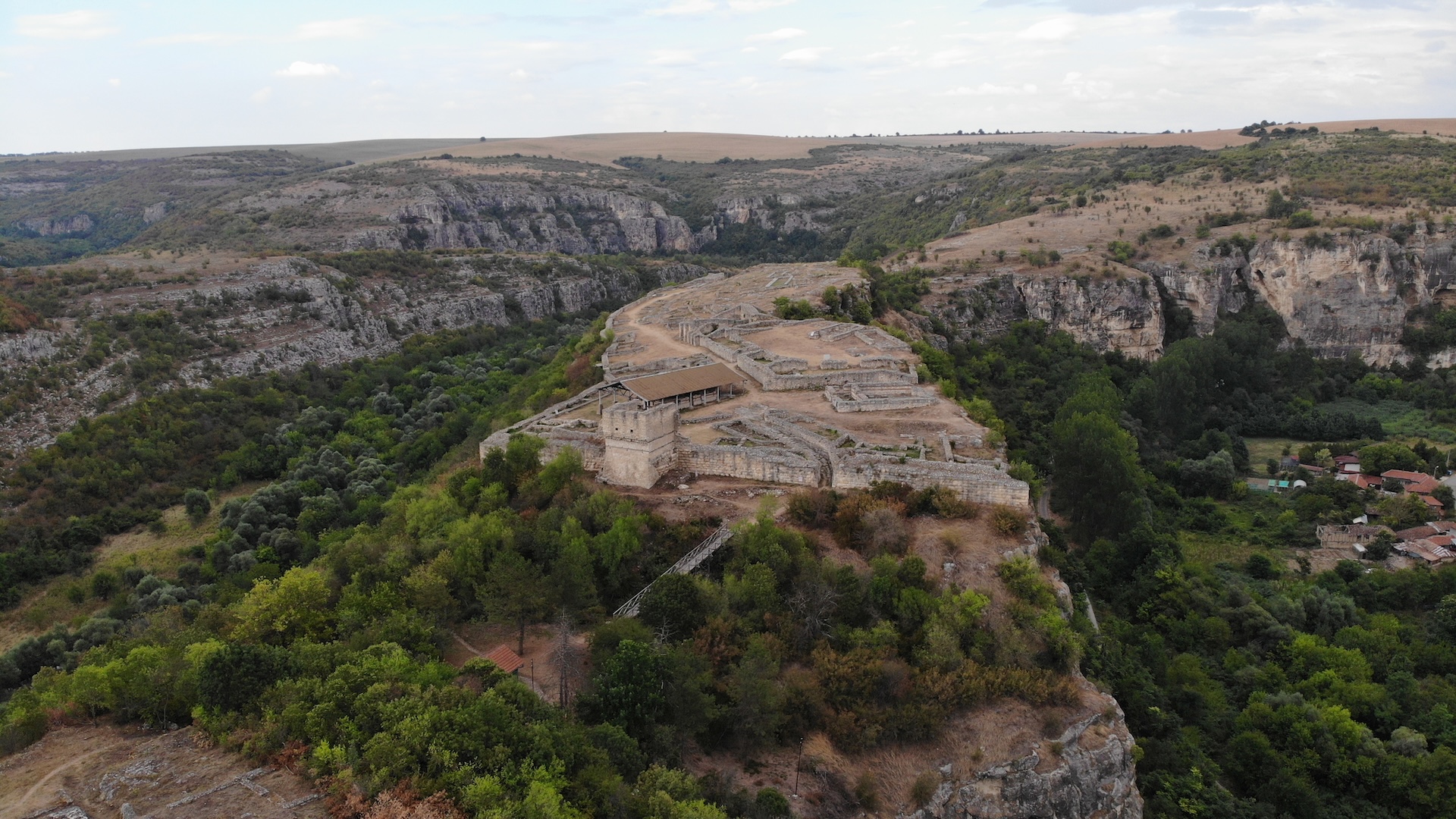
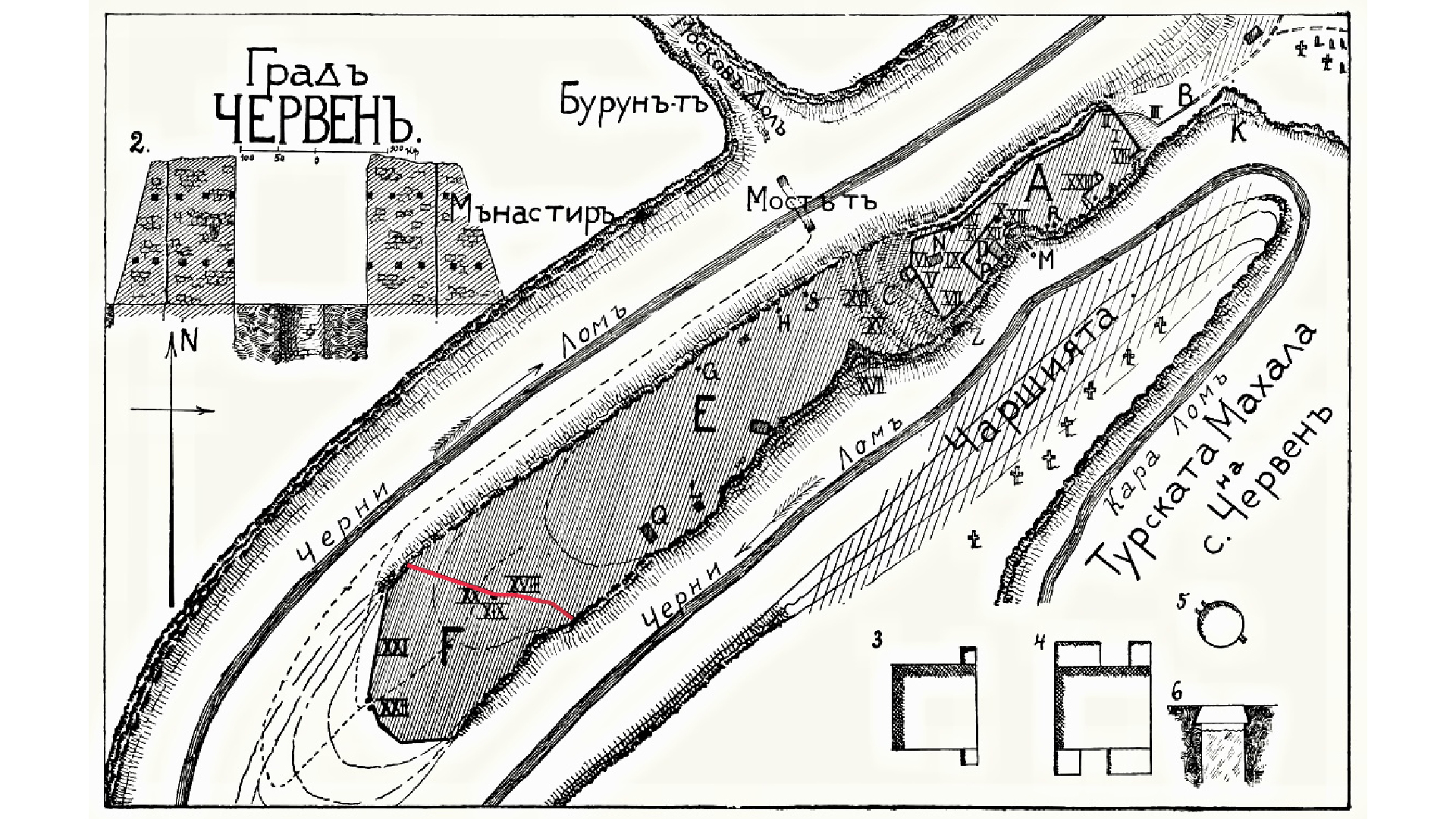
Fortress wall
Archaeologists have excavated around Cherven for more than a century, Velikova said. Ruins near the village show it was an important town during the Second Bulgarian Empire, which ruled from 1185 until the empire was completely conquered by the Ottomans in 1396.
Three other gold coins of the same type were found nearby in 1975, Velikova said, so it seems that local rulers had sometimes permitted the use of foreign coins, perhaps to make up for their own lack of gold.
The latest gold coin and other artifacts — including arrowheads, jewelry and pottery fragments — were found during excavations along what had been a defensive wall on the western side of a medieval fortress at Cherven, she said.
Until now, archaeologists thought the people who lived in the western part of the town were generally poor. But the new finds suggest that at least some were wealthy, Velikova said.
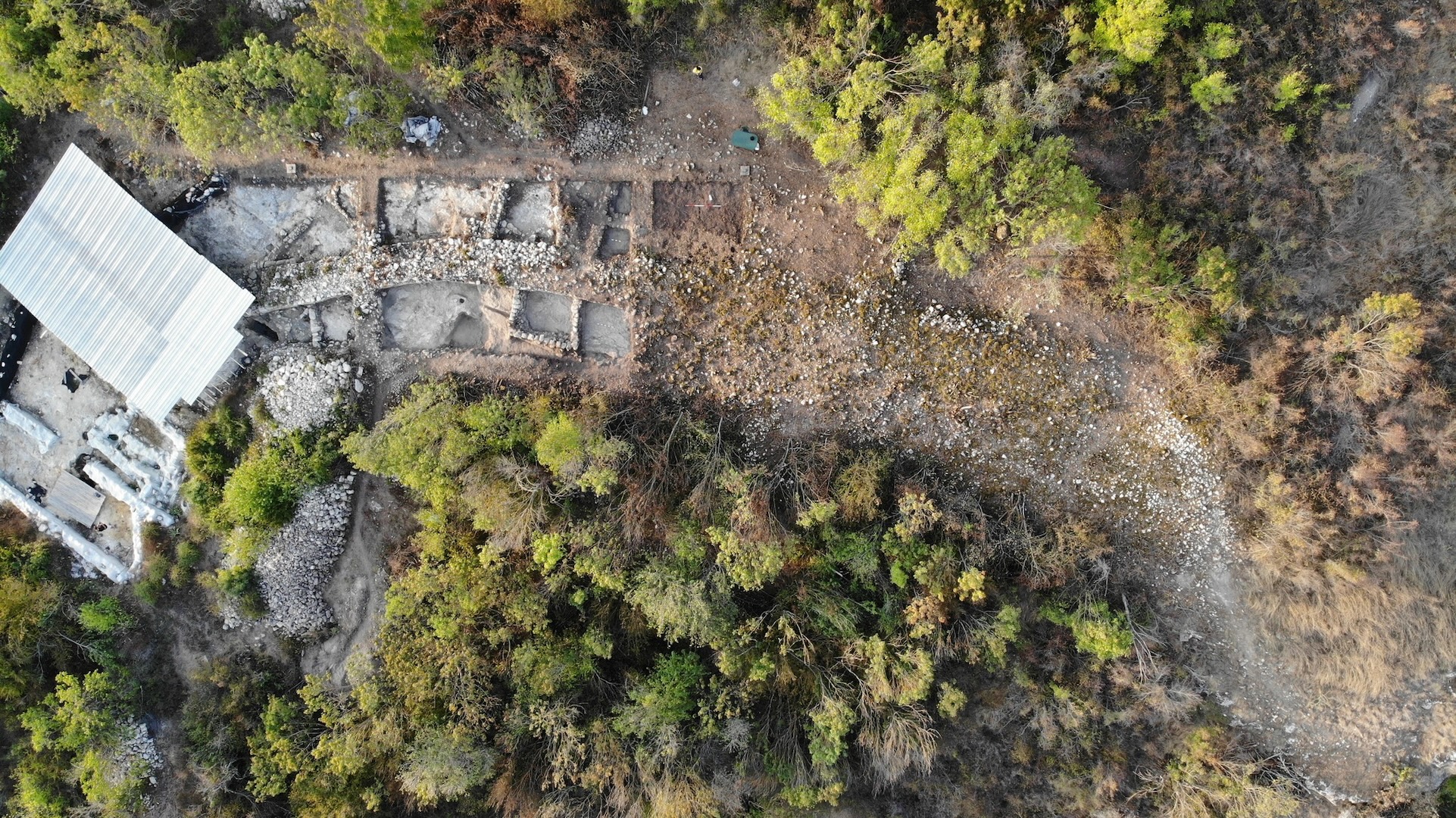
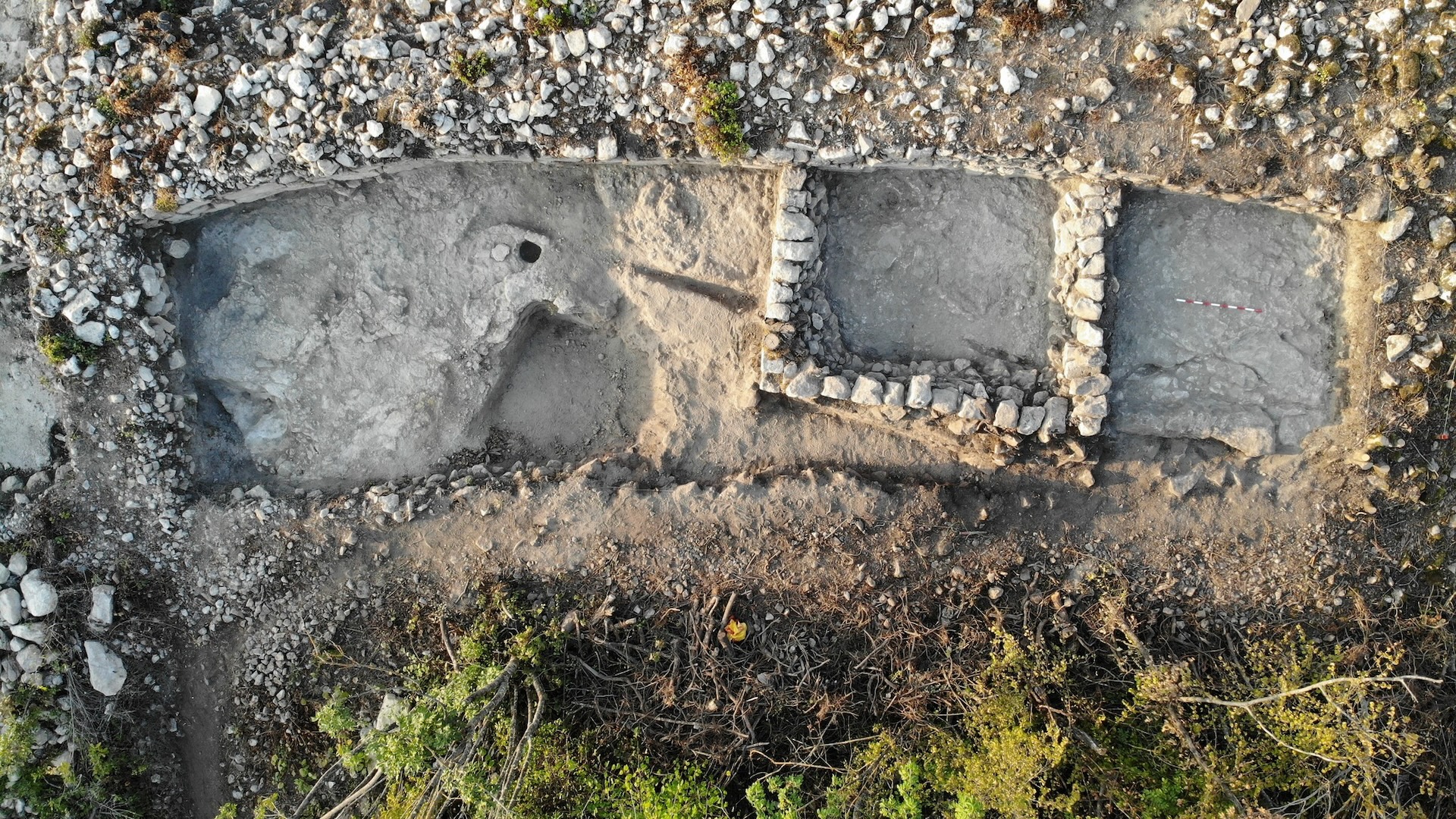
Medieval empire
The Second Bulgarian Empire was a major power in the medieval Balkans and a rival of the Byzantine Empire.
But both the Bulgarians and the Byzantines were also threatened by the Ottoman Empire, which already occupied many former Byzantine territories in the East.
Bulgaria remained an Ottoman territory for roughly 500 years after it was conquered in 1396; and the Ottomans went on to conquer Constantinople in 1453.







